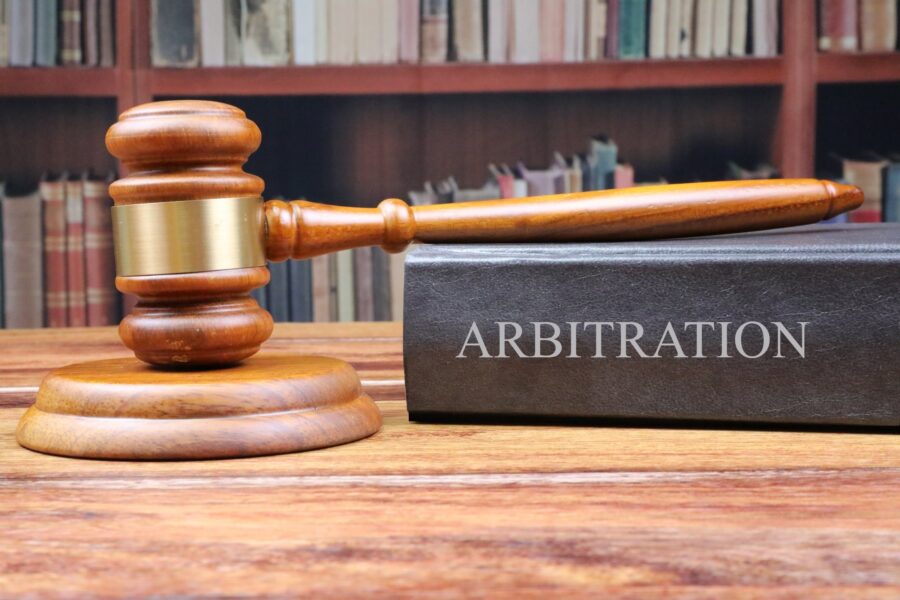INTRODUCTION
Arbitration is now widely acknowledged as an alternative dispute resolution mechanism that can resolve trade disputes with increasing predictability, certainty, and effectiveness. An arbitral tribunal’s final and legally enforceable ruling in a dispute involving two or more parties is known as an arbitral award. In India, the process for enforcing arbitral awards is outlined in the Arbitration and Conciliation Act, 1996 (the “Act”).
Referred to as a “Domestic award,” an arbitral award in India is the ruling made by an arbitral tribunal located in India in compliance with the relevant legislation currently in effect in India. The arbitral award in international commercial arbitration is made by a foreign-seated arbitral tribunal and is known as a “Foreign Award.”
According to Section 44 of the Arbitration and Conciliation Act 1996, a “foreign award” is an arbitral award made in one of these territories—those to which the Central Government notifies the territories to which the aforementioned Convention applies—arising out of legal relationships that are regarded as commercial under Indian law. India is party to both the Geneva Convention of 1960 and the New York Convention of 1958.
ENFORCEMENT OF ARBITRAL AWARD
The Arbitration and Conciliation Act of 1996 and the Code of Civil Procedure of 1908 essentially regulate the process for the enforcement and execution of both domestic and foreign awards. The execution of arbitral awards is governed by natural justice principles and is enforced as a court decree. The provisions of Part I of the Arbitration and Conciliation Act 1996 govern the execution of domestic awards, while Part II of the Act addresses the execution of foreign awards.
In terms of domestic award enforcement, Section 36 (as per the 2015 Amendment Act) stipulates that the award shall be enforced as if it were a court decree under the provisions of the Code of Civil Procedure 1908, unless the court grants an order of stay of the operation of the arbitral award for payment of money on such a separate application with due regard to Code of Civil Procedure 1908. This is true regardless of whether a separate application under Section 34 is filed or not.
Filing an execution petition with the court that has jurisdiction over the judgement debtor’s assets is the first step in enforcing a domestic award. An authenticating certificate and a copy of the award must be submitted with the execution petition. The award creditor will then be able to seize and sell the judgement debtor’s assets in order to pay the award creditor after the court issues a warrant of execution.
APPROPRIATE COURT FOR GETTING THE AWARD EXECUTED
When it comes to domestic awards, the Commercial Courts that exercise the same jurisdiction that normally comes before any Principal Civil Court with original jurisdiction in a district, as well as the Commercial Division of the High Court in the course of its regular original civil jurisdiction, would be the appropriate places to execute arbitral awards.
LIMITATION PERIOD FOR FILING PETITION FOR EXECUTION OF AWARD
Given that domestic awards are implemented as court decrees, arbitration is governed by the Limitation Act 1963, which establishes a 12-year statute of limitations for the enforcement of such decrees.
REGISTRATION AND STAMPING OF THE AWARD
In case of domestic awards, Section 35 of the Stamp Act 1899 states that an award which is not sufficiently stamped is inadmissible. Depending on where the award is made, the stamp duty amount varies from state to state. Additionally, an award that affects immovable property must be registered in accordance with Section 17 of the Registration Act of 1908; otherwise, it will be deemed invalid.


Tried the https://www.cornbreadhemp.com/products/thc-seltzer-blueberry-breeze-5mg from Cornbread Hemp — the understanding with a access of THC. Took song anterior to bed. The flavor’s decent, measure dirty but pleasant. Hither an hour later, I felt noticeably more relaxed — not drowsy, well-grounded appease sufficiently to direction substandard without my wavering be decided racing. Woke up with no morning grogginess, which was a minute surprise. They’re on the pricier side, but if you contend to unwind at tenebriousness, they could be importance it.
Tried these https://joyorganics.com/products/mood-gummies in front bed a scattering times in and they actually work. I’m chiefly tossing and turning, but with these I tip up falling asleep in the way of quicker. No freakish hangover compassionate in the morning either. Kinda excessive, but honestly good it when I very recently want a good night’s sleep.